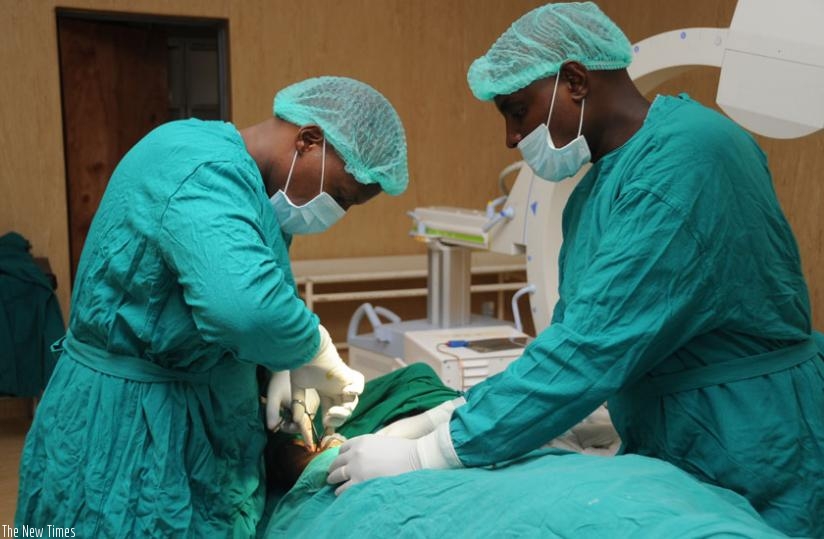People involved health sector – both directly and indirectly – need to coordinate and communicate effectively to ensure Rwandans access cost-effective and quality health services.


People involved health sector – both directly and indirectly – need to coordinate and communicate effectively to ensure Rwandans access cost-effective and quality health services.
The call was made by officials in Musanze District during a health coordination workshop to discuss how to improve easy access to health services.
The workshop brought together health officials from the Rwanda Health System Strengthening (RHSS) project, directors of hospitals and health centres, pharmacists and district officials, among others.
It aimed at explaining how the RHSS project will support decentralised levels to address health issues, gaps and challenges that hinder performance within the health system.
Aimé Bosenibamwe, the Northern Province governor, said poor coordination and lack of ownership hamper the progress of the health service and that there was need for better communication among local leaders and other health service providers to improve the sector.
"Health practitioners should be accountable, let’s put more efforts in coordination and monitoring, we can’t achieve any development if we don’t have a healthy people,” the governor said.
He added that, while the government and partners had invested a lot in strengthening the health sector, services would only be improved if all institutions work closely together.
Bosenibamwe said no development in the country would be achieved if Rwandans were not accorded stellar health service delivery.
"Development is not all about improved infrastructure or industry but rather human development, with better life expectancy. That is the development we want from health practitioners and partners,” Bosenibamwe said.
"The government has invested much and is still working with partners to strengthen the sector. However, if we don’t maximise chances to match the outcome with such a huge investment, then that is the main challenge we have to address.”
Mismanagement
Bosenibamwe said the health sector, especially hospitals and health centres, are marred by mismanagement and lack of ownership which affect service delivery.
He also said the fact that local leaders are not doing much to mobilise the contribution to community based health insurance was another hurdle toward better service delivery.
Pierre Dongier, team leader, leadership and governance at Management Science for Health (MSH) –Rwanda, explained that the workshop was about understanding and assessing the achievements and challenges faced in the sector.
"We have identified challenges related to the leadership and governance, especially for the decentralised governing entities. It is clear that there is need to strengthen those governing bodies, the district health management teams and district hospital board of directors and the health committees and the relationship between those different committees and the local government,” he said.
"There is also need to improve the communication and coordination between the health technicians and the decision-makers at district levels. This is where there is need for capacity building.”
The Rwanda Health System Strengthening project started in 2014. It is a five-year project built on work initiated under the Integrated Health Systems Strengthening Project (IHSSP, 2009-2014) and the HIV Performance Based Financing Project (HIV/PBF 2005-2009), all funded by the US Agency for International Development at the cost of $25 million.
editorial@newtimes.co.rw


